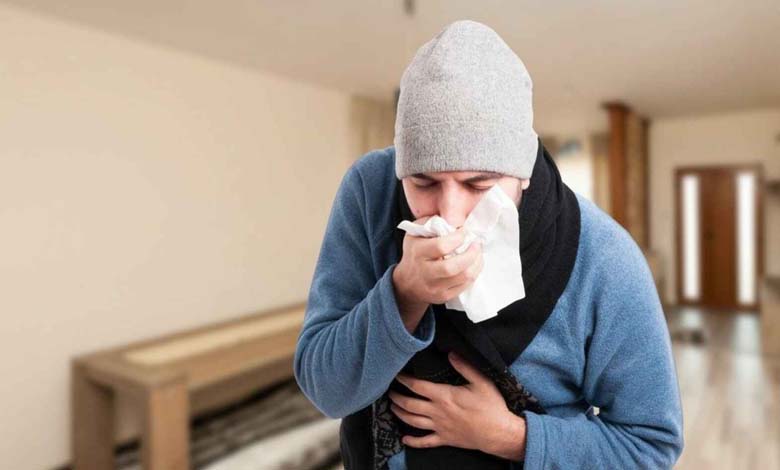How to Protect Yourself from Widespread Respiratory Diseases this Season

As winter approaches, viruses are spreading worldwide, leading to a significant rise in respiratory illnesses. This has raised concerns among experts about healthcare systems’ ability to handle this challenge.
-
Winter viruses returning, doctors urge to stay vigilant
-
Winter Diseases… Why Are They Affecting Us in the Summer?
Specialists warn that this increase could place greater pressure on hospitals and healthcare facilities, further complicating the situation.
According to a report published by Euronews, these viruses include influenza, respiratory syncytial virus (RSV), and COVID-19, which have become more common since the COVID-19 pandemic, posing a potential triple threat this winter.
Antoine Flahault, Director of the Institute of Global Health at the University of Geneva, highlighted the significant impact these viruses have on healthcare, social, and economic systems. He explained that while severe cases are rare, they contribute heavily to hospital overcrowding during epidemic peaks, necessitating full preparedness to address these challenges.
The European Respiratory Virus Surveillance Summary (ERVISS) indicates that the number of people visiting doctors for respiratory illnesses remains within expected levels, though some countries are currently experiencing an increase in cases.
-
Surprise… Virus Affecting ‘Most People’ Causes Serious Disease
-
What is Croup (Laryngeal Cough)? Causes and Treatment Methods
Rick Malley, a physician at Boston Children’s Hospital, noted that although it is still early to pinpoint precise trends, disruptions caused by the COVID-19 pandemic have altered the patterns of respiratory disease spread, including influenza and RSV.
Influenza, a seasonal illness caused by influenza viruses, is spreading in many countries. The World Health Organization states that it leads to winter epidemics in temperate climates and can, in some cases, cause severe illness or death.
-
A “unprecedented” virus infects a young man in Peru
-
A new epidemic looms on the horizon… What is “Mycoplasma”?
By late November, influenza activity was low across EU and EEA countries but has recently begun increasing in some nations.
RSV, which also raises concerns, poses significant risks to infants and the elderly. European health authorities have reported a notable rise in RSV cases this year, accompanied by an increase in positive test results.
The European Centre for Disease Prevention and Control (ECDC) has warned that all countries should prepare for increased RSV activity in the coming weeks. While this virus affects young children more severely, older adults are also at risk.
-
Scientists fear the “silent pandemic”: the upcoming epidemic is killing already
-
A rare disease sweeping America… Extremely dangerous and targeting children
Meanwhile, COVID-19 cases declined this fall after peaking in July. Although current levels are similar to or lower than those of the same period last year, the virus continues to circulate year-round, increasing the likelihood of coinciding with other seasonal epidemics.
The report also mentions other respiratory viruses, such as parainfluenza viruses, metapneumoviruses, and adenoviruses, which, though generally less severe, contribute to the spread of illnesses during the winter months. Norovirus, which causes vomiting and diarrhea, is also common during this season.
The spread of these viruses is facilitated by factors such as indoor gatherings, poor ventilation, reduced ultraviolet light exposure, and the use of central heating, which affects air quality. Flahault recommends improving indoor air quality and wearing FFP2 masks in poorly ventilated areas to help reduce transmission.
To protect against winter illnesses, the report emphasizes the effectiveness of vaccinations. Peter Kramarz, a senior scientist at the ECDC, underscores the need to boost vaccination rates for seasonal influenza and COVID-19 to protect the most vulnerable populations.
Finally, the ECDC recommends staying home if respiratory symptoms develop, washing hands frequently, and ventilating indoor spaces properly.
-
Why do people fall ill in the winter? Everything would be played in the nose…
-
Why we are more likely to get viral infections in the winter? The problem is your nose
-
COVID-19 – Researchers have discovered how the virus manages to reach the brain












